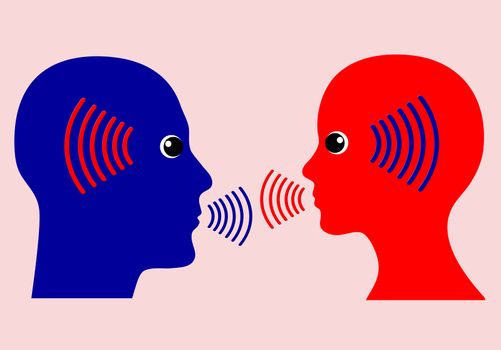“The art of conversation lies in listening.”
–Malcolm Forbes
A good listener is someone who actively pays attention and engages with the person speaking. They show interest in what is being said and demonstrate that they understand and care about the speaker’s thoughts and feelings. We have two ears and one tongue so we would listen more and talk less.
Characteristics of a Good Listener
Some characteristics of a good listener include:
– They give their full attention and avoid distractions while the other person is talking.
– They use nonverbal cues, such as nodding and making eye contact, to show that they are engaged in the conversation.
– They ask clarifying questions or make statements that reflect an understanding of what the speaker is saying
– They avoid interrupting the speaker or steering the conversation in a different direction.
– They avoid giving unsolicited advice or trying to solve the speaker’s problems.
– They respect the speaker’s opinions, even if they disagree.
– They provide empathy and validation, showing that they understand and care about the speaker’s feelings.
Benefits of Being a Good Listener
A good listener can be a valuable asset in any relationship, as it helps to build trust, understanding, and intimacy. He/she can help people feel heard, seen, and understood and can be a source of support and encouragement.
Being a good listener has many benefits. Here are a few:
Improved communication: When we actively listen to others, we show that we are interested in what they have to say and value their thoughts and opinions. This can lead to more effective communication and better understanding between people.
Increased empathy: Good listening involves paying attention to what someone is saying and trying to understand their perspective. This can help us to develop empathy and connect with others on a deeper level.
Stronger relationships: When we listen actively to others, we show them that we care about them and their feelings. This can help to build stronger, more trusting relationships and foster a sense of connection and belonging.
Greater productivity: Good listening can also be beneficial in a professional setting. When we listen effectively, we are more likely to understand instructions and tasks, which can lead to increased productivity and efficiency.
Improved problem-solving: By listening actively to others and fully understanding their perspective, we can more effectively collaborate and come up with creative solutions to problems.
Overall, becoming a good listener can have a positive impact on our personal and professional relationships and lead to improved communication, greater empathy, and increased productivity.
How to Become a Good Listener?
Here are some tips for becoming a good listener:
Pay attention: Give the person your full attention and focus on what they are saying. Avoid distractions like checking your phone or multitasking while they are speaking.
Show interest: Use nonverbal cues like nodding your head or making eye contact to show that you are interested in what the person is saying.
Avoid interrupting: Let the person finish speaking before jumping in with your own thoughts or ideas.
Clarify: If you are unsure about something the person has said, ask for clarification. This shows that you are actively listening and trying to understand their perspective.
Reflect: Paraphrase what the person has said to show that you have heard and understood their perspective. This can also give them an opportunity to correct any misunderstandings.
Practice active listening: This involves not just hearing what someone is saying, but also trying to understand their perspective and feelings. Pay attention to nonverbal cues and try to see things from their point of view.
By following these tips, you can become a more effective listener and strengthen your relationships with others besides getting numerous other benefits in your personal and professional life.



